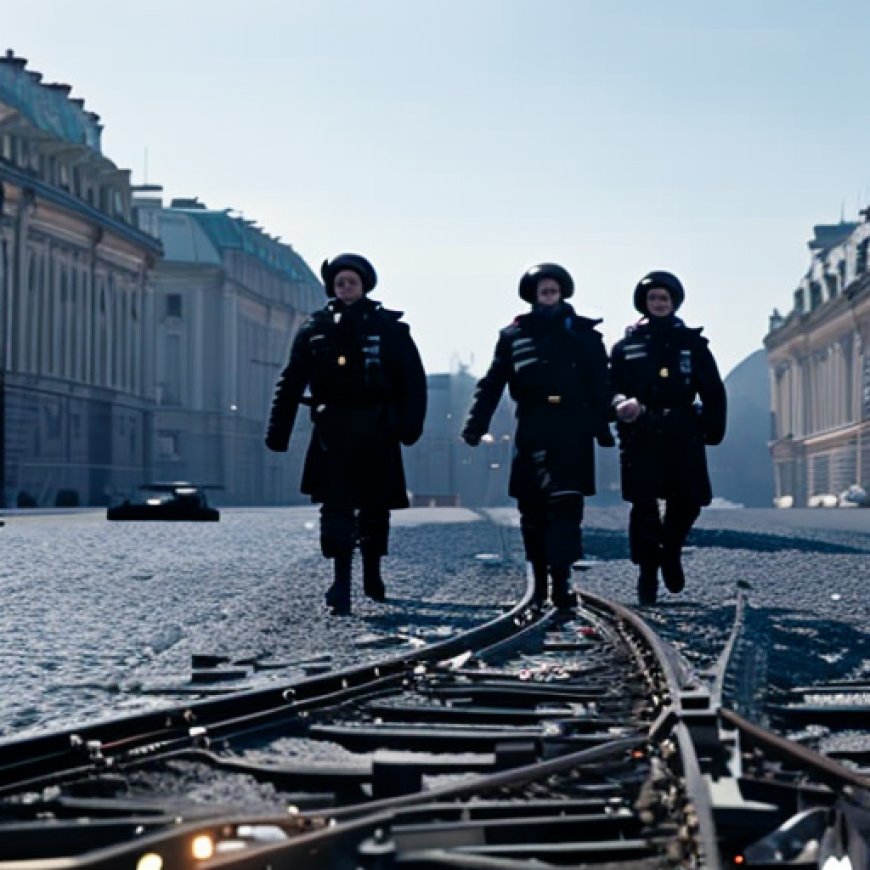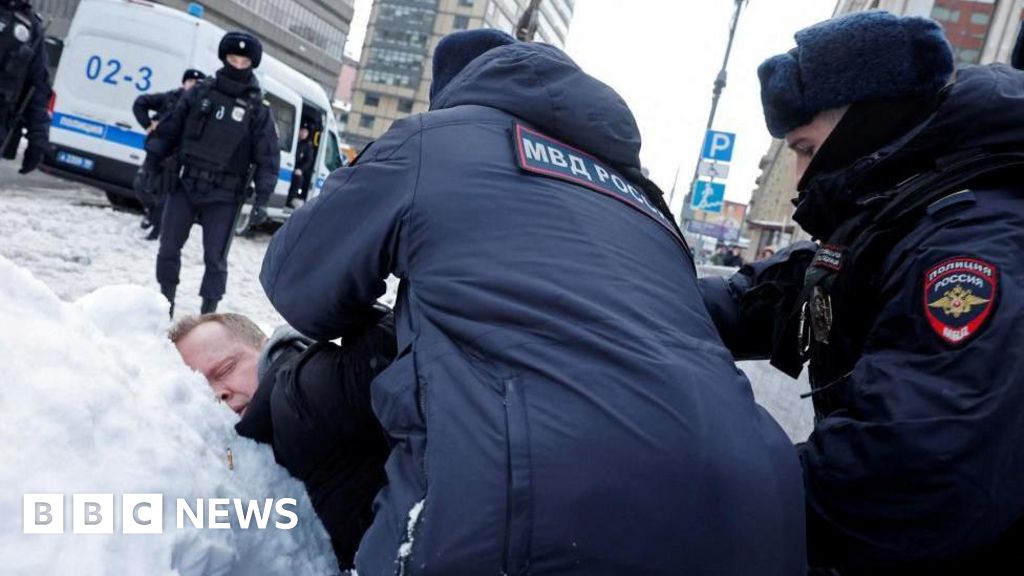Russia: ‘Systematic crackdown’ on human rights since Ukraine invasion


Human Rights in Russia: A Report on the Deterioration since the Invasion of Ukraine

Introduction
Human rights in Russia have “severely deteriorated” since the full-scale invasion of Ukraine, culminating in a “systematic crackdown” on civil society, a UN report has found.
The investigation details police brutality, widespread repression of independent media, and persistent attempts to silence Kremlin critics using punitive new laws.
Mariana Katzarova, the UN’s special rapporteur on human rights in Russia, was denied entry into the country and compiled the report by speaking to political groups, activists, and lawyers.
She found “credible reports” of torture and allegations of sexual violence, rape, and threats of sexual abuse by police.
The Kremlin has not commented publicly since its release.
Sustainable Development Goals (SDGs)
The Sustainable Development Goals (SDGs) are a set of global goals adopted by the United Nations in 2015 to achieve a better and more sustainable future for all. The SDGs address various social, economic, and environmental challenges, including poverty, inequality, climate change, and peace and justice.
Impact of the Invasion of Ukraine
Human rights abuses in Russia have been well documented during the Vladimir Putin era, but the latest UN report pays particular attention to how the February 2022 invasion of Ukraine has accelerated what it says was previously a “steady decline”.
It details how laws passed in recent years targeting the spread of so-called fake news, and individuals or organizations deemed to have received foreign support, have sought to “muzzle” any opposition, both physically and online.
The new laws have led to “mass arbitrary arrests” and long prison sentences, it adds.
Highlighted Cases
- Artyom Kamardin, who was jailed for seven years for reading an anti-war poem in public – an act authorities deemed to be “inciting hatred”.
Ms Katzarova told the BBC: “Russians are getting shockingly long prison sentences. “It’s seven years for reading an anti-war poem, or saying a prayer by a priest which was against the war, or producing a play perceived to be anti-war. Two women are still in prison for that in Russia.”
She praised those who continue to organize despite threats and said she believes opposition to the war is quietly widespread.
Impact on Children and Indigenous Communities
The report accuses the government of seeking to propagate its views on the Ukraine conflict among children via the introduction of mandatory school lessons, officially labeled as “important conversations”.
“Children refusing to attend such classes and their parents are subject to pressure and harassment,” it adds. The report highlights the case of a fifth-grader from Moscow who was interrogated by police after skipping the class, before their mother was charged with “failing to fulfill parental duties”.
It found that many men sent to Ukraine “have been mobilized by deception, the use of force, or by taking advantage of their vulnerability”, while those who have refused to fight have been held in detention centers in occupied areas and “threatened with execution, violence, or a prison sentence if they did not return to the front lines”.
Men from indigenous communities make up a disproportionate number of those drafted into the army, it found, and there is evidence “authorities have imposed travel restrictions, blocking exit routes from towns and villages during mobilization sweeps”.
Ms Katzarova said: “Indigenous people… are really facing extinction if this continues. “I think, partly my guess and the trends that indigenous leaders are painting, is that this is part of the Russian authorities really wanting to send to the front line ‘disposable people’, not the Slavs from St Petersburg or Moscow.”
Other Findings in the Report
- Judges acting as a “mouthpiece” for the government because of the depth of political interference
- Russia described as an “increasingly homophobic society”, pointing to recent laws curtailing the freedoms of LGBT+ people
- Female anti-war activists disproportionately affected by the crackdown on dissent and are “even more vulnerable in custody”
- A “climate of fear and repression” amid widespread police brutality in Chechnya, adding that the southern republic should serve as a “warning” for what could happen elsewhere in Russia
Conclusion
The report deals with human rights in Russia’s internationally recognized borders, so does not comment on reported abuses in Russian-occupied territories in Ukraine, Georgia, and Moldova.
SDGs, Targets, and Indicators in the Article
1. Which SDGs are addressed or connected to the issues highlighted in the article?
- SDG 16: Peace, Justice, and Strong Institutions
- SDG 10: Reduced Inequalities
- SDG 5: Gender Equality
2. What specific targets under those SDGs can be identified based on the article’s content?
- SDG 16.10: Ensure public access to information and protect fundamental freedoms, in accordance with national legislation and international agreements.
- SDG 10.2: By 2030, empower and promote the social, economic, and political inclusion of all, irrespective of age, sex, disability, race, ethnicity, origin, religion, or economic or other status.
- SDG 5.1: End all forms of discrimination against all women and girls everywhere.
3. Are there any indicators mentioned or implied in the article that can be used to measure progress towards the identified targets?
- Indicator for SDG 16.10: Number of verified cases of human rights violations and abuses, including torture, sexual violence, and arbitrary detention.
- Indicator for SDG 10.2: Number of individuals subjected to arbitrary arrests and long prison sentences based on political or ideological beliefs.
- Indicator for SDG 5.1: Disproportionate impact on female anti-war activists and their vulnerability in custody.
Table: SDGs, Targets, and Indicators
| SDGs | Targets | Indicators |
|---|---|---|
| SDG 16: Peace, Justice, and Strong Institutions | Target 16.10: Ensure public access to information and protect fundamental freedoms, in accordance with national legislation and international agreements. | Indicator: Number of verified cases of human rights violations and abuses, including torture, sexual violence, and arbitrary detention. |
| SDG 10: Reduced Inequalities | Target 10.2: By 2030, empower and promote the social, economic, and political inclusion of all, irrespective of age, sex, disability, race, ethnicity, origin, religion, or economic or other status. | Indicator: Number of individuals subjected to arbitrary arrests and long prison sentences based on political or ideological beliefs. |
| SDG 5: Gender Equality | Target 5.1: End all forms of discrimination against all women and girls everywhere. | Indicator: Disproportionate impact on female anti-war activists and their vulnerability in custody. |
Source: bbc.com








